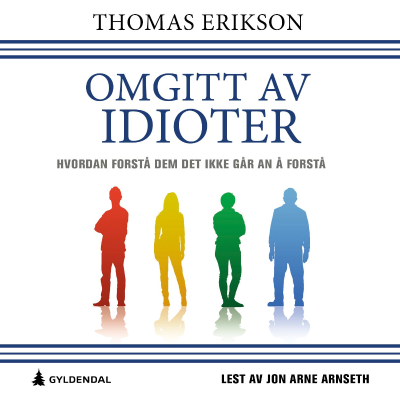
Christian Women In The UK
engelsk
Historie & religion
Prøv gratis i 14 dager
99 kr / Måned etter prøveperioden.Avslutt når som helst.
- 20 timer lydbøker i måneden
- Eksklusive podkaster
- Gratis podkaster
Les mer Christian Women In The UK
Who are we in Christ, and how does that identity shape the way we live? How do we build authentic, Christ-centered relationships? And how do we balance faith, family, and everyday life? This podcast explores these questions through biblical truth and practical wisdom. Together, we look at how understanding our identity in Christ brings clarity, confidence, and purpose to daily life. Join us as we explore biblical truths and practical wisdom for a purposeful, Christ-focused life. info@cwinuk.org Join the group https://www.facebook.com/groups/906295196389427/ or website www.cwinuk.org
Alle episoder
224 EpisoderWomen of the Bible: Peter's Mother-in-law & Pharaoh's Daughter
In this episode, we continue our *Women of the Bible* series by exploring the powerful stories of two often-overlooked women whose lives reflect God’s compassion, purpose, and sovereignty. We begin with the Gospel accounts of **Peter’s mother-in-law**, a woman who was bedridden with fever until Jesus healed her. Scripture tells us that the moment she was restored, she got up and began to serve Him. Her response is a beautiful reminder of our own salvation journey—how Christ lifts us, restores us, and calls us into a life of joyful service. Her story invites us to reflect on what it means to serve God out of gratitude, healing, and renewed purpose.We then turn to the remarkable courage of **Pharaoh’s daughter**, the woman who found baby Moses floating in the Nile. In an act of compassion that defied her father’s brutal decree, she rescued the child who would later lead God’s people out of Egypt. Her story teaches us that God can use anyone—believer or not—as part of His sovereign plan. It also reminds us that choosing mercy over fear has generational impact.From there, we delve into the biblical theme of *adoption*. We reflect on our own adoption into God’s family through Christ and explore how we can extend that same love in practical ways today—whether through adoption, fostering, sponsoring a child, or simply showing God’s love to the children and vulnerable individuals in our communities. This episode invites listeners to consider how we can be instruments of protection, compassion, and hope in the lives of others.Join us as we uncover the wisdom woven through these women’s stories and discover how their courage, faith, and compassion can shape our walk with God today.
Matthew 7:12: What Does Love Look Like When We Treat Others as We Want to Be Treated?
In this week’s podcast episode, we take a deep and thoughtful look at **Gospel of Matthew 7:1–12**, examining Jesus’ powerful teaching on **judging others, God’s love, biblical correction, and the Golden Rule**. If you’ve ever wondered what “Do unto others as you would have them do unto you” really means—or how this famous verse reveals the depth of God’s love—this episode is packed with insight, clarity, and practical application.We begin by exploring Jesus’ warning: *“Do not judge, so that you will not be judged.”* But what does that truly mean? We unpack the difference between **unbiblical judgment**—a final verdict that closes the door on love—and **biblical correction**, which is rooted in compassion, truth, and restoration. Calling out sin in a loving, biblical way is not a form of judgment; rather, **judgment is the refusal to love enough to keep praying, guiding, and evangelising**.This episode highlights how Jesus calls us to humility instead of harshness, mercy instead of condemnation, and a lifestyle that reflects the grace we’ve been given.Next, we explore how Jesus shifts to the character of our Heavenly Father. If we, flawed and selfish as we are, know how to give good gifts to our children, **how much more** will God—who is perfect love—give good things to those who ask? Notice that Jesus uses examples of *needs*, like bread and fish, to show that God provides what is truly nourishing and essential, not just what we desire.This transitions seamlessly into the heart of the passage: **the Golden Rule**. Together we discover how:* The Golden Rule reflects the love and goodness of God* God’s generosity empowers us to treat others with compassion* Biblical correction flows from love, not condemnation* Showing true love may introduce someone to real love for the very first time* Living out “Do unto others” is only possible when we draw from the love God has shown us* We represent God’s heart when we love, forgive, give, and refuse to issue final judgmentUltimately, this episode reveals how **Matthew 7:1–12** is a unified teaching about experiencing God’s love and reflecting that love to others—through how we speak, act, correct, forgive, and live.If you want to understand the Golden Rule more deeply, if you wrestle with the idea of judgment, or if you desire to grow in Christlike love and biblical wisdom, this episode offers rich encouragement and practical guidance.**Tune in now to explore how Jesus’ words in Matthew 7 can transform your relationships, deepen your faith, and help you love others the way God loves you
Numbers 12:3 - Moses The Most Humble Man in All The Earth
In this powerful and reflective episode of our faith-focused podcast, we dive deep into **Numbers 12:3**, where Scripture describes **Moses as “the most humble man on the face of the earth.”** What does that truly mean, and how can modern believers, leaders, and everyday disciples learn from Moses’ extraordinary example of humility?Join us as we explore the **leadership lessons, spiritual insights, and practical applications** found in Moses’ response to criticism, conflict, and responsibility. We unpack the context of Numbers 12—where Miriam and Aaron speak against Moses—and examine how Moses demonstrates radical humility, emotional restraint, and unwavering dependence on God. Instead of reacting with pride, anger, or defensiveness, Moses models **meekness, patience, mercy, and trust** in a way that still challenges us today.Throughout the episode, we take a closer look at:* **Moses’ humility as a leader** and why Scripture elevates it as one of his defining traits* **What biblical humility really means**—strength under control, not weakness* **The power of godly delegation**, including Moses’ relationship with Joshua and how he invested in the next generation* **How Moses showed grace and forgiveness** toward his siblings even after they opposed him* **Why humility is essential for spiritual growth, leadership, and healthy community*** **How the example of Moses points us to Jesus**, the ultimate model of servant-leadership and humilityThis episode offers rich encouragement and practical takeaways for pastors, Christian leaders, small-group teachers, or anyone seeking to grow in Christ-like character. If you’ve ever struggled with criticism, conflict, pride, or leadership pressure, Moses’ life offers timeless wisdom—and this conversation helps bring it into focus for your daily walk.Whether you’re studying the Old Testament, exploring biblical leadership, or simply seeking spiritual renewal, this deep dive into Numbers 12:3 will inspire you to embrace humility, trust God more fully, and lead with grace.**Tune in now to discover how the humility of Moses can transform your faith, your leadership, and your relationships today.**
Women of the Bible: Naaman's Wife Slave & Noah's Wife and Daughters-in-Law
In this episode, we explore the inspiring stories of two often-overlooked women in the Bible—Naaman’s wife’s servant girl and Noah’s wife and daughters-in-law. Though unnamed in Scripture, their faith, courage, and obedience offer powerful lessons for every believer today. We begin with the young servant girl in Naaman’s household. Despite being taken captive and living far from home, she demonstrated extraordinary faith in God. Her willingness to speak up and point Naaman toward the prophet of Israel shows the impact of sharing God’s truth even in difficult circumstances. Her story challenges us to trust God, evangelise with compassion, and remain faithful no matter what we face. We then look at the women in Noah’s family—his wife and daughters-in-law—who worked alongside Noah during the building of the ark. Though Scripture does not record their names, their loyalty, unity, and perseverance remind us that God values the unseen work of faithful servants. Their quiet strength teaches us the beauty of standing firm together despite criticism, cultural pressure, or seasons of uncertainty. This episode invites you to reflect on how God sees every act of obedience, even when the world does not. These biblical women may not be named, but they are fully known and deeply loved by our heavenly Father. Their examples encourage us to stay committed, trust God’s plan, and walk in faith—even when our work feels hidden. Join us as we uncover the powerful lessons these women of the Bible offer for Christian living, spiritual resilience, and growing in our identity in Christ.
CONTENTMENT: Finding Peace and Satisfaction in Christ
In this episode, we take a deep and honest look at **contentment**—what it truly means from a biblical perspective and how it shapes the way we live, think, and make decisions. We explore contentment not as the absence of ambition, but as a deep, settled satisfaction rooted in Christ. While ambition and growth are not wrong, achievement was never meant to be our primary goal or the defining measure of a successful life. Using **Romans 14:8** and **Philippians 1:21** as our foundation, we reflect on what it means to live and die for the Lord, and how these verses help us create a Christ-centred framework for decision-making. When our lives are anchored in belonging to Him, our souls can find rest—even when circumstances are uncertain or outcomes fall short of our expectations. We also talk candidly about the challenge of guarding our hearts against discontent, especially as youthful optimism fades and we look back over life wondering why certain hopes, plans, or dreams did not unfold as we imagined. How do we remain at peace when life takes unexpected turns? How do we trust God when reality doesn’t match our earlier vision? This conversation gently invites us to lift our eyes beyond earthly measures of success and rediscover contentment in our secure hope of salvation. As we anchor ourselves in Christ, we are reminded that our eternity is safe in Him—and that truth brings peace, freedom, and lasting joy. Join us as we reflect on finding true contentment, rest for our souls, and confidence in the Lord who holds our past, present, and future.
Velg abonnementet ditt
Premium
20 timer lydbøker
Eksklusive podkaster
Gratis podkaster
Avslutt når som helst
Prøv gratis i 14 dager
Deretter 99 kr / måned
Premium Plus
100 timer lydbøker
Eksklusive podkaster
Gratis podkaster
Avslutt når som helst
Prøv gratis i 14 dager
Deretter 169 kr / måned
Prøv gratis i 14 dager. 99 kr / Måned etter prøveperioden. Avslutt når som helst.















































